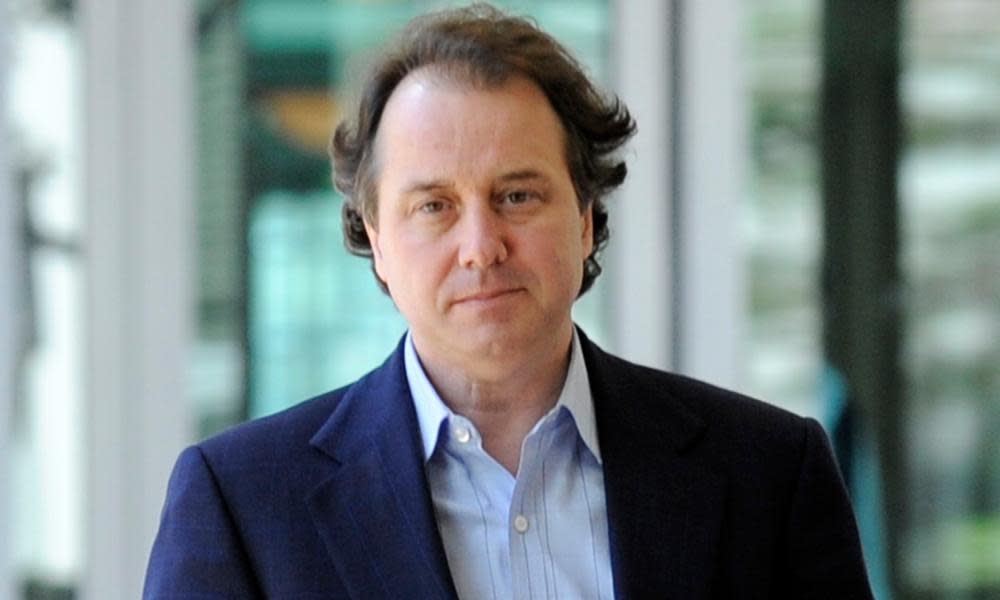Mayfair 101 faces legal action by former Nationals MP over $1m investment

The former National party senator Julian McGauran has launched legal action accusing the troubled financial group that is attempting to redevelop Queensland’s Dunk Island, Mayfair 101, of giving him false and misleading information about a $1m investment.
The move comes amid increasing legal and financial pressure on the Mayfair empire, which is controlled by its founder James Mawhinney.
This includes a decision by a separate court on Thursday to appoint provisional liquidators to investigate the affairs of part of the group following the transfer of assets to a company in the British Virgin Islands.
As Guardian Australia has previously reported, Mayfair has also run into trouble at Mission Beach, near Dunk Island. As part of an ambitious plan to redevelop the entire area it agreed to buy more than 200 properties, but angered some locals by putting off or cancelling settlement.
Related: Receivers appointed to Mayfair 101 companies, with more than $85m investor funds at risk
In proceedings filed in the federal court, McGauran accused companies in the Mayfair group of falsely claiming investment in notes issued by Mayfair were an “alternative to term deposits” issued by banks.
Mayfair froze redemptions of the notes by investors owed a total of $140m in April.
McGauran’s case is to be heard alongside similar allegations that Mayfair has engaged in misleading and deceptive conduct by comparing the notes to bank term deposits, laid before the courts by the corporate regulator.
In a statement filed with the federal court, McGauran alleged it was misleading for Mayfair to compare the notes, into which he pumped $1m, to term deposits because they “have a significantly higher risk profile than bank deposits”, which are protected under a guarantee scheme.
He also accused Mayfair of breach of contract by failing to honour his request to pay out his investment when the notes, which were advertised as paying interest at 4.95% a year, matured in May.
McGauran told the court that in April Mayfair advised him, by email, that withdrawals had been temporarily suspended due to “the impending onset of Covid-19 and the importance of preserving value for the benefit [of] our investors”.
However, in the same emails Mayfair staff said they “strongly consider it to still be a good time to be invested with the Mayfair 101 group despite these short-term headwinds which we are capable of navigating” and insisted the group’s “investment strategy remained sound and largely resilient”, McGauran said.
McGauaran, who is best known for causing political uproar when he defected from the Nationals to the Liberals in 2006 while John Howard was prime minister, did not respond to a request for comment made through his lawyer, Howard Rapke of Holding Redlich.
Mayfair has yet to file a defence and a spokesman for the group declined to comment “as these matters are still before the court”.
Meanwhile, in separate proceedings, a Victorian supreme court judge on Thursday ordered provisional liquidators appointed to 16 companies associated with another Mayfair investment product, the IPO Wealth Fund, which owes investors $77m. Mawhinney is the sole director of each company.
The orders followed a hearing this week during which Michael Galvin QC, representing receivers already in place at the companies, claimed the evidence in the case “raised the spectre of a Ponzi scheme”.
Counsel for Mawhinney, Sam Hay SC, denied the allegation.
“This is not a Ponzi scheme and that submission should be rejected,” he told the court on Monday.
On Thursday judge Ross Robson said he was concerned about the management of the companies and the appointment of the receivers as provisional liquidators would allow them to grill Mawhinney under oath about the affairs of the companies.
Robson raised concerns about the sale by one of the IPO Wealth companies of a stake in UK-registered accounting software company Accloud to 101 Investments, a company in the British Virgin Islands controlled by Mawhinney.
The court heard evidence that under the deal 101 Investments would not have to pay the purchase price of €12m for 15 years.
Hay told the court this arrangement was never entered into.
However, Robson said Mawhinney had provided two different versions of what happened to the Accloud shares to the court.
“I am also satisfied that Mr Mawhinney has not proffered a satisfactory explanation for the transfer of the Accloud shares to 101 Investments Ltd,” Robson said on Thursday. “He’s had ample time to address the matter.”
Robson said he had grave doubts about what return would be available to investors in the fund.
He said the provisional liquidators would be likely to use their power to compel Mawhinney to give evidence under oath at an examination because he appeared to be the “sole repository” of information about the affairs of the companies.
Several aspects of the evidence strongly suggested assets had been wrongly dealt with, he said.
Mayfair’s spokesman said the shares in Accloud were sold to 101 Investments for cash and it was not clear to the group why Robson did not find this explanation satisfactory.
“Mayfair 101 Group maintains that its assets were properly dealt with at all times,” he said.
“The group has always dealt with all of its assets in an appropriate manner. Every dollar can be accounted for.”
He reiterated Mayfair 101’s denial that IPO Wealth was a Ponzi scheme.
“We categorically reject this claim,” he said.
“By definition, such a scheme has no assets. The Mayfair 101 group had considerable assets globally.”
He said Mawhinney would welcome the opportunity to give evidence under oath and denied IPO Wealth’s woes would have any impact on the redevelopment of Dunk Island and Mission Beach.
“It is an unfortunate and disappointing outcome, however the group remains focused on the future and continuing this important project for far north Queensland,” he said.

 Yahoo News
Yahoo News 
